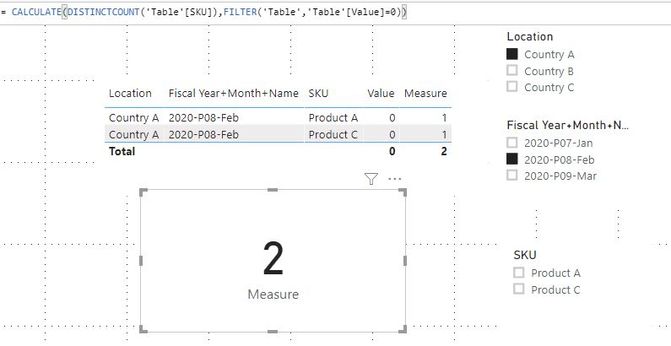- Power BI forums
- Updates
- News & Announcements
- Get Help with Power BI
- Desktop
- Service
- Report Server
- Power Query
- Mobile Apps
- Developer
- DAX Commands and Tips
- Custom Visuals Development Discussion
- Health and Life Sciences
- Power BI Spanish forums
- Translated Spanish Desktop
- Power Platform Integration - Better Together!
- Power Platform Integrations (Read-only)
- Power Platform and Dynamics 365 Integrations (Read-only)
- Training and Consulting
- Instructor Led Training
- Dashboard in a Day for Women, by Women
- Galleries
- Community Connections & How-To Videos
- COVID-19 Data Stories Gallery
- Themes Gallery
- Data Stories Gallery
- R Script Showcase
- Webinars and Video Gallery
- Quick Measures Gallery
- 2021 MSBizAppsSummit Gallery
- 2020 MSBizAppsSummit Gallery
- 2019 MSBizAppsSummit Gallery
- Events
- Ideas
- Custom Visuals Ideas
- Issues
- Issues
- Events
- Upcoming Events
- Community Blog
- Power BI Community Blog
- Custom Visuals Community Blog
- Community Support
- Community Accounts & Registration
- Using the Community
- Community Feedback
Register now to learn Fabric in free live sessions led by the best Microsoft experts. From Apr 16 to May 9, in English and Spanish.
- Power BI forums
- Forums
- Get Help with Power BI
- Desktop
- distinct count with filter & sum
- Subscribe to RSS Feed
- Mark Topic as New
- Mark Topic as Read
- Float this Topic for Current User
- Bookmark
- Subscribe
- Printer Friendly Page
- Mark as New
- Bookmark
- Subscribe
- Mute
- Subscribe to RSS Feed
- Permalink
- Report Inappropriate Content
distinct count with filter & sum
Hi!
I'm trying to get the number of SKUs where the sum in the value column = 0 :
| Location | Fiscal Year+Month+Name | SKU | Value |
| Country A | 2020-P07-Jan | Product A | 13 |
| Country A | 2020-P08-Feb | Product A | 0 |
| Country A | 2020-P09-Mar | Product A | 0 |
| Country B | 2020-P07-Jan | Product A | 0 |
| Country B | 2020-P08-Feb | Product A | 0 |
| Country B | 2020-P09-Mar | Product A | 0 |
| Country B | 2020-P07-Jan | Product B | 0 |
| Country B | 2020-P08-Feb | Product B | 7 |
| Country B | 2020-P09-Mar | Product B | 0 |
| Country A | 2020-P07-Jan | Product C | 0 |
| Country A | 2020-P08-Feb | Product C | 0 |
| Country A | 2020-P09-Mar | Product C | 0 |
| Country C | 2020-P07-Jan | Product B | 0 |
| Country C | 2020-P08-Feb | Product B | 4 |
| Country C | 2020-P09-Mar | Product B | 0 |
I'd like to be able to filter it by the month and the country.
I wrote a formula but it is counting the no of SKUs before summing the values, resulting in some SKU counting as being = 0 and also being >0
I'm looking for a way to count the no. of SKUs after the sum.
Thank you!
Examples based on above table:
| How many distinct SKUs with sum of value = 0? | |
| ALL | 1 |
| Filter on country A | 1 |
| Filter on country B | 1 |
| Filter on Country C | 0 |
| Filter on 2020-P08-Feb | 2 |
| Filter on Country A and 2020-P08-Feb | 2 |
| Filter on Country B and 2020-P08-Feb | 1 |
| Filter on 2020-P08-Feb and Product B | 0 |
Solved! Go to Solution.
- Mark as New
- Bookmark
- Subscribe
- Mute
- Subscribe to RSS Feed
- Permalink
- Report Inappropriate Content
Measure automatically sums the count. If I understand you currently you could take a look this:
Measure = CALCULATE(DISTINCTCOUNT('Table'[SKU]),FILTER('Table','Table'[Value]=0))
Paul Zheng
If this post helps, then please consider Accept it as the solution to help the other members find it more quickly.
- Mark as New
- Bookmark
- Subscribe
- Mute
- Subscribe to RSS Feed
- Permalink
- Report Inappropriate Content
Measure automatically sums the count. If I understand you currently you could take a look this:
Measure = CALCULATE(DISTINCTCOUNT('Table'[SKU]),FILTER('Table','Table'[Value]=0))
Paul Zheng
If this post helps, then please consider Accept it as the solution to help the other members find it more quickly.
- Mark as New
- Bookmark
- Subscribe
- Mute
- Subscribe to RSS Feed
- Permalink
- Report Inappropriate Content
for count of SKU > 0
sumx(summarize(Table[product],"_sum",sum(Table[value])),if([_sum]>0,1,0))
for count of SKU > 0, country wise
sumx(summarize(Table[product],table[Location],"_sum",sum(Table[value])),if([_sum]>0,1,0))
Microsoft Power BI Learning Resources, 2023 !!
Learn Power BI - Full Course with Dec-2022, with Window, Index, Offset, 100+ Topics !!
Did I answer your question? Mark my post as a solution! Appreciate your Kudos !! Proud to be a Super User! !!
Helpful resources

Microsoft Fabric Learn Together
Covering the world! 9:00-10:30 AM Sydney, 4:00-5:30 PM CET (Paris/Berlin), 7:00-8:30 PM Mexico City

Power BI Monthly Update - April 2024
Check out the April 2024 Power BI update to learn about new features.

| User | Count |
|---|---|
| 110 | |
| 94 | |
| 80 | |
| 67 | |
| 59 |
| User | Count |
|---|---|
| 150 | |
| 119 | |
| 104 | |
| 87 | |
| 67 |

